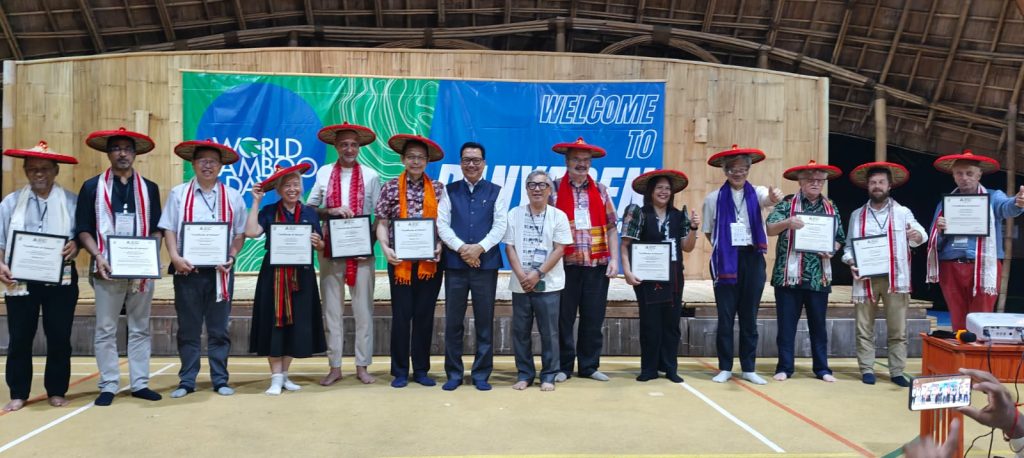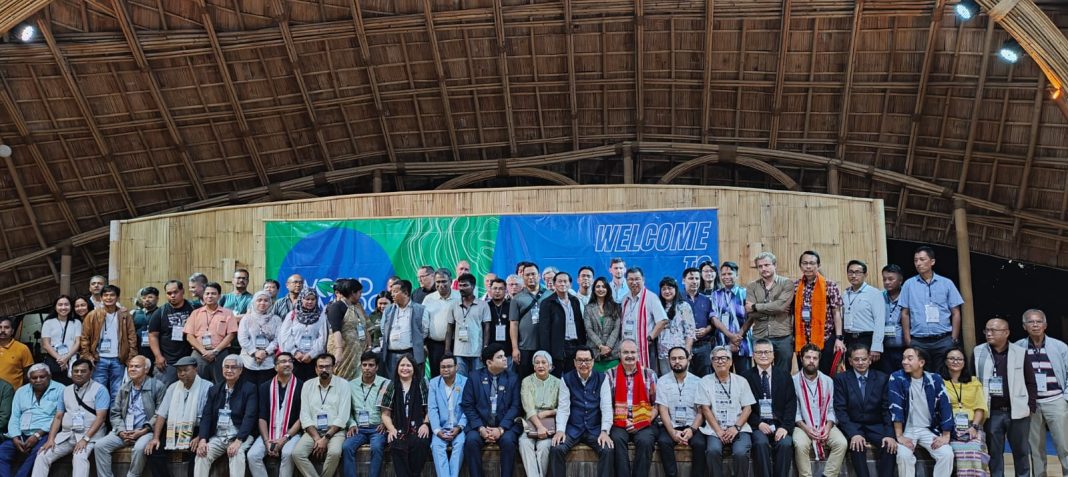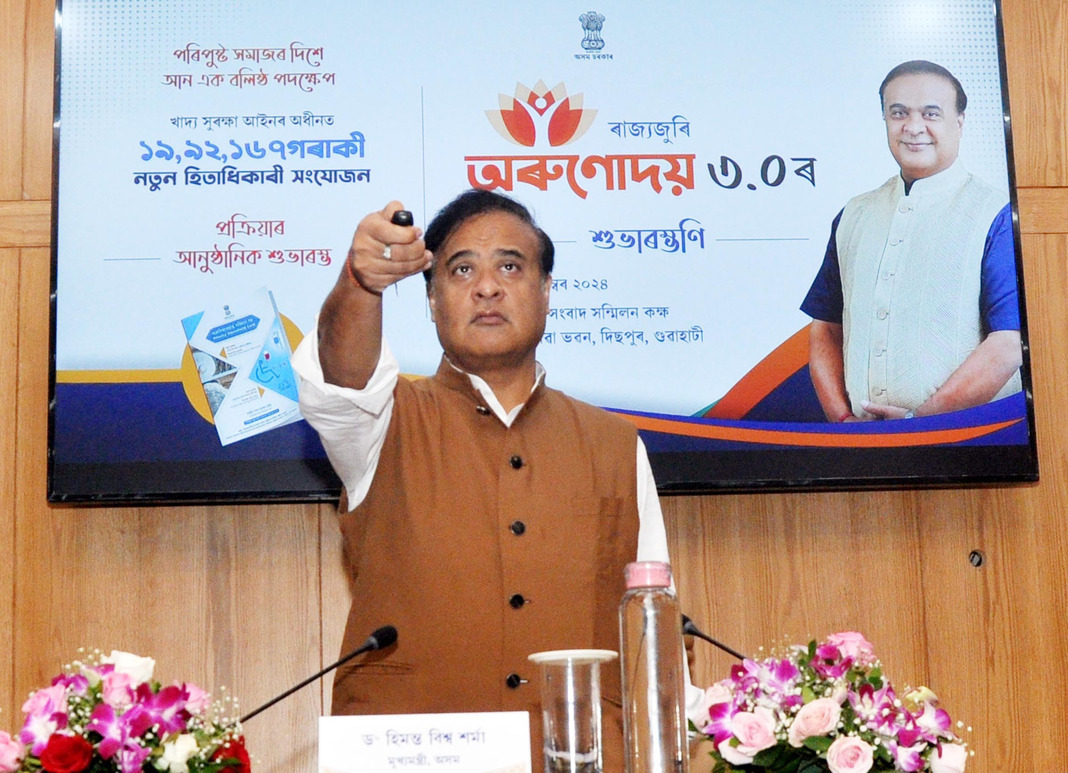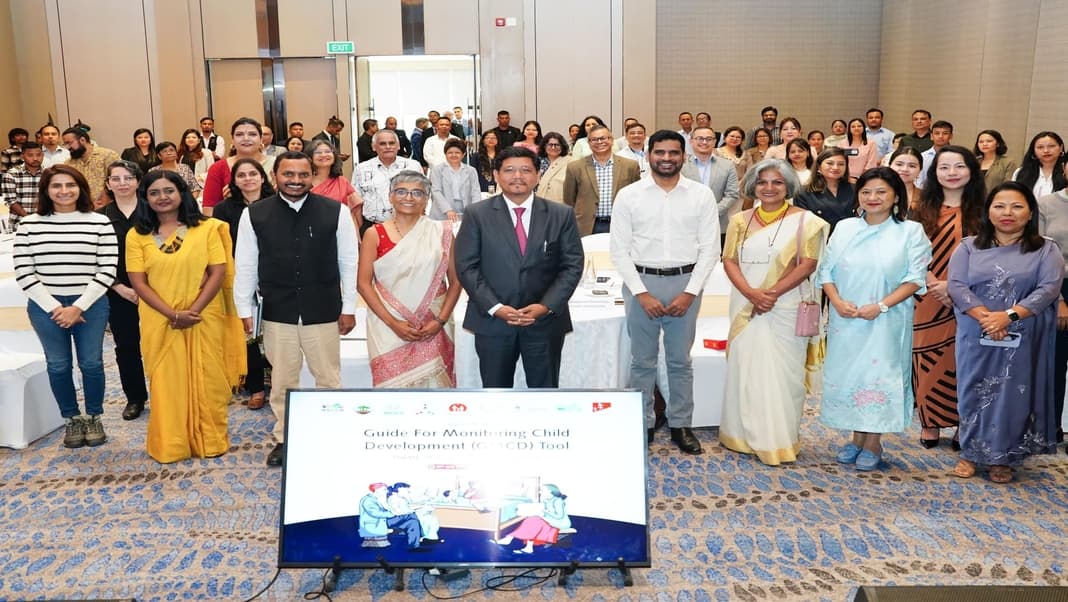Chiang Mai (Thailand), Sept 19: Arunachal Pradesh Deputy Chief Minister Chowna Mein emphasized the need for collective efforts to promote bamboo development as a key driver of a more sustainable and prosperous future. He called for stakeholders, including the government, industries, and local communities, to work together in realizing the potential of bamboo as an eco-friendly resource that can contribute to both environmental conservation and economic growth.
Mein graced the 15th World Bamboo Day celebrations at Chiang Mai University in Thailand as the chief guest on Wednesday amidst a host of dignitaries from across the globe.
Addressing a distinguished international audience, Mein noted that bamboo, often referred to as the “Poor Man’s Timber,” is not only the tallest grass but also a remarkably versatile and rapidly growing plant, offering a sustainable alternative to traditional timber.
While highlighting the global distribution of bamboo with approximately 1,200 species across worldwide, 150 are found in India and 98 in the Northeast region alone.
He added that his state, Arunachal Pradesh boasts the highest bamboo diversity, with 76 species across 19 genera. The region’s varied altitudes—from 150 meters to over 7,000 meters above sea level—nurture a wide array of bamboo species, each uniquely adapted to its environment, he said.
He said that bamboo is inseparable from the people of Arunachal Pradesh and it plays an integral role in the socio-cultural lives of the Northeast people, where it is used in traditional tools, intricate baskets, and festival decorations.
He further stated that modern technological advancements have further expanded bamboo’s potential, leading to the creation of high-quality products such as bamboo mat boards, flooring materials, and artistic crafts with both domestic and international appeal.
The Deputy Chief Minister further dilating on the application of bamboo in our daily lives, said that bamboo’s myriad uses include construction, agriculture, and cultural practices, with every part of the plant serving a purpose. The culms are utilized in various applications, leaves are processed into drugs and fodder, and shoots are incorporated into local cuisines and beverages, he added.
Mein also informed that bamboo is an important ingredient in the tribal cuisines of the Northeast because of its taste, high nutritional values and low fat content. These shoots provide essential fibre and contribute significantly to local culinary traditions, he said.
He also highlighted the innovative utilization of bamboo in the region, citing recent technological advancements that have enabled the production of agro-gas (2G Bio CNG) and ethanol.
He informed that the Assam government has embarked on a pioneering project in collaboration with international partners to produce ethanol from bamboo, underscoring bamboo’s economic and environmental potential.

Acknowledging the challenges in sourcing quality bamboo for industrial use, Mein further emphasized the ongoing efforts to promote commercial cultivation and support farmers in large-scale bamboo production. These initiatives aim to leverage bamboo for watershed management, soil and water conservation, and rural development, thereby boosting the state’s economy and ensuring nutritional security.
Mein also conveyed his heartfelt appreciation to Kamesh Salam, Founder of World Bamboo Day and Executive Director of the South Asia Bamboo Foundation, as well as to Dr PandinOunchanum, Dean of the Faculty of Architecture, for extending the invitation to this prestigious program and for the warm hospitality extended to him and his entourage.
On the occasion, he also witnessed the recognition of 12 exemplary individuals as “Bamboo Gurus” for their exceptional contributions to the promotion, development, and sustainable use of bamboo under the SDGs of the United Nations.
The event was also attended by the Founder of World Bamboo Day and Executive Director of the South Asia Bamboo Foundation, Kamesh Salam, Dean of the Faculty of Architecture, Dr Pandin Ounchanum, Sapol Boonsermsuk from Thailand, Shibita Shozo, from Japan, Dr Markus Roselieb from Thailand, Luc AC Boeraeve from Belgium, Ahmad Mazlan Othman from Malaysia, Marc Peeters from Indonesia, Piazza Marco from Italy, Michel Abadie from France, Dulce Blanca Punzalan from the Philippines, Susanth CS from India, Dr Shi-Ming (Jack) Huang from Taiwan and Dr My Hanh Diep from Vietnam.




